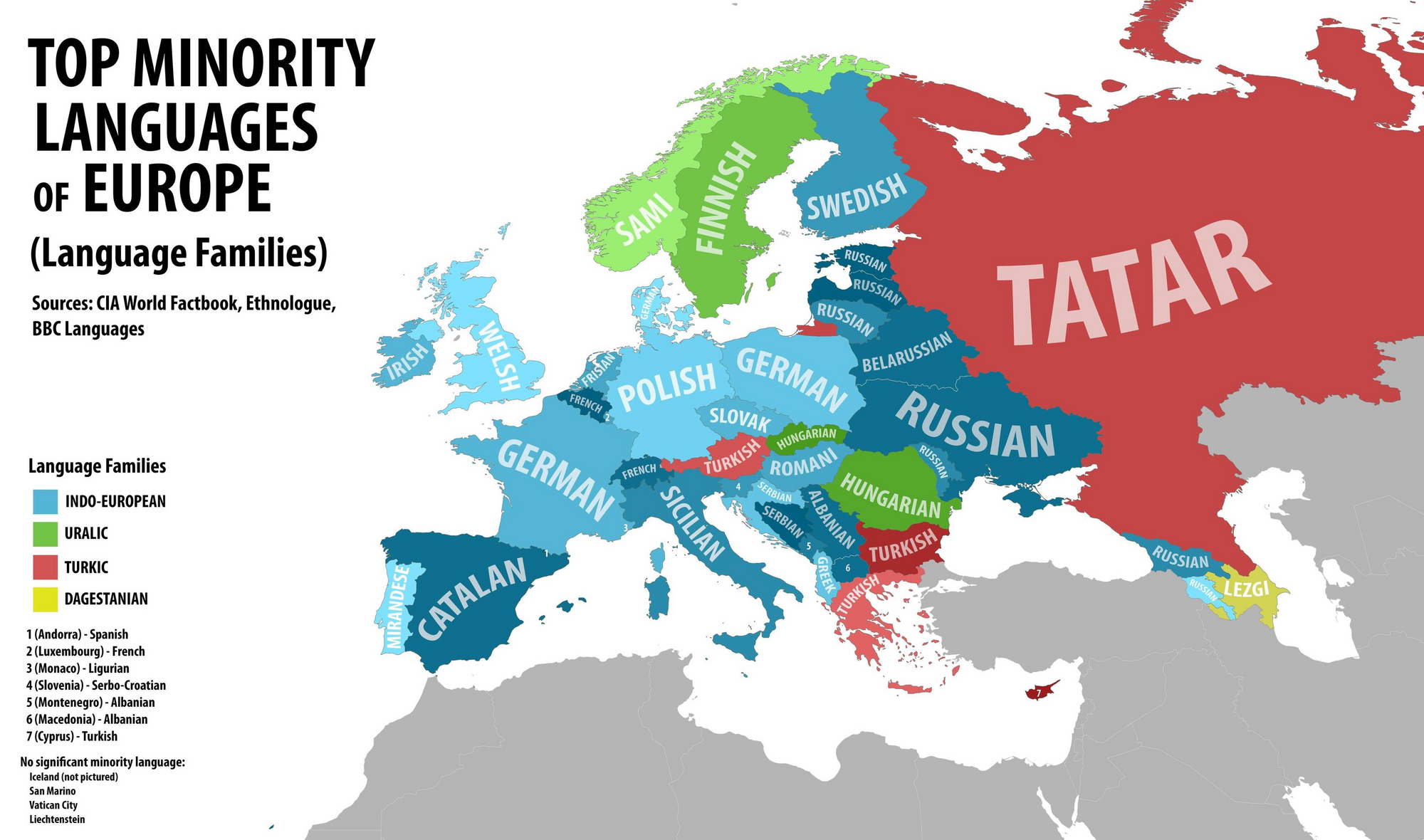
Why you should learn at least a language
A 6 minutes read written by Sonia H on April 2023
Learning a language seems to be a big effort - it is. Not gonna lie. But it is also an asset, a tool, and, most importantly, a bridge.
I don't want this to be an article on the benefits that you can objectively obtain from learning languages, or that approaches them as a cold tool to reach a purpose, or an asset to sound cooler. None of that. Although I learn languages because I am interested in the languages themselves or in the culture, there can actually be a mix of pleasure and functionality - I actually think that the healthiest is a mix of both.
Let's be also honest, though: learning a language can also aid your brain to expand its borders and become more agile, like it would while learning maths. It all comes with a win-win factor. Even though learning a language requires maintenance, the pleasures and benefits - in that order - that it grants you are so many that it is completely worth it.
I want to show you what it can provide to your life and to your individual and social person, beyond the "it will help you scale up your career" talk. There are many people who suggest learning Chinese or Spanish as two of the most spoken languages in the world - but if we keep it to the essential, there's nothing that calls more to frustration than doing something that you don't really want.
1) To understand more stories, whatever your niche
I would lie if I said that speaking several languages didn't help me with my university theses. I could access more sources, read more books, and find information that hadn't been translated to other languages.
But that's not the main point about the stories, which can be almost infinite. Learning a language opens the gates to the intangible parts of culture: songs, stories and legends, characteristics of specific cultures, and even jokes. Beyond the asset, learning foreign languages does more than that. Like adding spices to bland white rice. No more feeling excluded.
2) To help you solve interpersonal problems
This will sound obvious, but it isn't.
I bet you've had at least a misunderstanding related to language comprehension while travelling abroad. The South African comedian Trevor Noah noted in a sketch how speaking a language - as well as understanding it - isn't as easy, especially when it comes to accents. Speaking with an accent - or not knowing certain specific words, for that matter - doesn't have anything to do with your interlocutor's intelligence. If you know more than one language, that is something that will humble you almost immediately, and will surely bring you closer to the people you talk to. Higher understanding, all ways. As a polyglot, I can't count the amount of false friends between languages, even between sister languages. That led to many misunderstandings, so don't underestimate this! Without proper understanding, real communication is difficult.
If you would have a new neighbor from a foreign country, finding out where are they from is mostly easy, as you can ask. Go to Google Translate or your translator tool of choice and see how to say Good morning in your neighbor's language. It may be just a single step, but if you want to lend your hand and build bridges, that is the beginning.
At work it is much more delicate: Misunderstandings and false friends between languages - even between languages such as Spanish and Italian - are very common and can really switch radically what is said and what is understood. If you have regular clients from a specific country, with whom you generally talk, let’s say, about finance, learning some key words in their language (or at least having them written down in your office just in case they’re needed) can be of immense help. Not everyone makes that little effort for others, and that can show off on the long run both on the personal and the professional level.
3) To manage outside of your comfort zone
Let's say that something unplanned happens, or that you may (hopefully) get to interact with people from another part of the world. If you're living in the south of the United States, for example, learning Spanish or specifically Mexican Spanish could make things much easier, as the chance of interacting with Mexican people or Latin people will be high.

That doesn't mean that it is extremely urgent for you to learn, but that it can be a long-time goal to which you dedicate some time every now and then. That way, if you'd ever be in a situation where speaking Spanish may turn out useful, you'd be already set. That can apply to other languages spoken in the US, in this example, just for the sake of being a good neighbor and saying good morning in your neighbor's language every now and then. Same applies to Europe:

If you always interact with people who are exactly like you, the amount of novelty and different input that you can get is very limited - as I often say, like eating plain rice every day, with nothing else. On the other hand, when we add differences, we experience different tastes, different perspectives. That can be strange at first - even "dangerous" for some - but the more you interact with different people the richer and deeper are you going to become on a human level, regardless of whether you want to keep in touch with these people on the long run.
4) To travel and live abroad
Don't make the mistake of learning the language after you move - it will be much harder to learn a language once you're already in the country of destination.
- To travel: unless you're going for a trip with a few days notice, I strongly recommend you to learn at least a bit of the language of your destination before you travel, to get around worry-free. Although English is commonly understood all around the globe, for many saying Hi, Thanks or Please in their language shows that you've gone the extra mile, and will be seen as kind and respectful. (Not to mention that this could even get you more help from the locals)
- To live abroad: imagine you work for X company, and you're aware that the most important clients are German, Chinese, and French. You may interact with these clients or not, but at least knowing a word or two in those languages could help you greatly - unless there'd be the risk that you're set to be in any of those countries for a project either short or long-term. Then you'd better prepare much in advance (or cry a lot, your choice). Learning a language for such purposes isn't like using Google Translate - as it's related to your job, you will need some amount of field understanding, comprehension, and cultural sensitivity (like knowing how to behave around your Chinese or German clients).
- If you're going to emigrate: that is BIG stuff. Make sure you know at least a bit before you move, otherwise you'll be excruciatingly overwhelmed once you arrive, and will look for a refuge to hide in - which won't help your adaptation process. Prepare in advance with the method that helps you the most. Download apps (I am a Duolingo-fan, I don't rely on other apps), listen to the news (either in podcasts or in YouTube), inform yourself on language schools at your destination, and, most importantly, stay courageous. It won't be easy, it never is - and that doesn't make it any less worth it. It is going to be challenging for a long time, but also exciting.
5) To open doors, in many senses
I was raised bilingual, with the prevalence of Spanish, and splashes of other languages. I learned Italian (not mastered, though) when I was little because part of my family had moved to Italy (beginning from my grandma's sister). I began studying English at five. When we would travel with my parents, I would listen carefully to what people used to say so that I could, in turn, say good morning and thank you to people.
Some decades forward, I speak about 10 languages fluently, and have knowledge in about 10 others. I don’t expect to speak 20 languages perfectly - that would take an immense amount of time to dedicate to languages every day. Probably only two of the first 10 languages I speak fluently are mastered, but I am fluent in the rest. I don’t seek perfection, as our race towards perfection tends to cut many things short.
It is not uncommon to find people who want their kids to learn Chinese from age 3 or earlier, as it is a language with a future. Some others, on the other hand, try to teach their children the original language of the family, or the region they live in, like the Bréton renaissance in France. It is not about mastery, or about adding another skill to the brain of our hopefully genious child. Languages, even if not mastered, are a precious tool that opens new doors even only in the human level. There's no need for perfection in that.




Comment